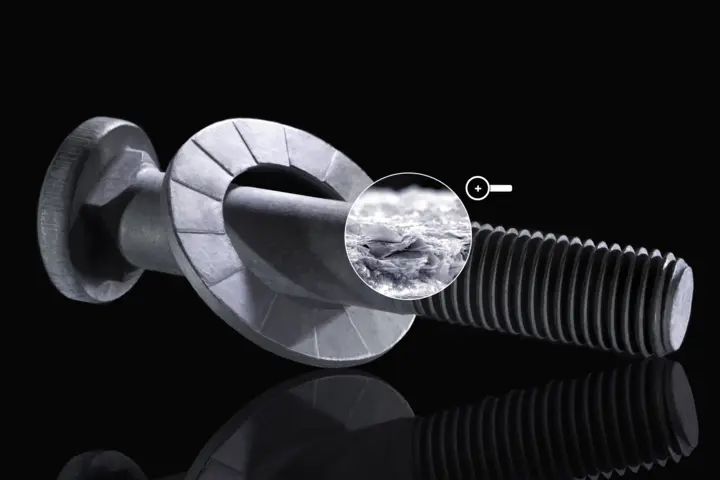Winterthur, November 2021 – Corrosion-proof fasteners are essential in the automotive industry, and they perform an equally critical function in wind turbines. Thanks to its choice of four ANALYSE systems from Kistler as test stands to determine friction coefficients, Dörken can meet ever-stricter test requirements and ensure compliance with uniform standards throughout the world – especially for its zinc flake coatings.
How is it that a fastener testing laboratory is located on the site of a chemical company that generates most of its sales (totaling around EUR 300 million) from paints, varnishes and laminated sheets for roofs? Founded back in 1892, Ewald Dörken AG has its headquarters in the German town of Herdecke (State of North Rhine-Westphalia). As well as construction finishing and coatings of all types, the company's expertise also includes corrosion protection – with a special focus on fasteners. Virtually all the fasteners in a car are coated, and what are known as zinc flake coatings are used for this purpose in most cases: Small steel components are cleaned and dipped in an immersion bath containing the coating; the excess is then spun off, and the final stage of the process is baking. As zinc is less noble, it protects the coated metals – and the same process is also used for large M24 anchor bolts in wind turbines.
However, this process is not carried out on Dörken's own site – instead, it is performed by coating service providers. These independent companies and licensees are supplied and audited by Dörken (some of them also use different fastener test stands). Its worldwide network includes over 200 of these “coaters” who ensure that the right corrosion protection is applied to fasteners, nuts and other parts for the automotive industry, the wind power and mechanical engineering sectors, and many other special-purpose applications. As well as zinc flake coatings, there are other technologies such as coil coating and galvanic coating – but these methods are not so important in terms of volume.







![Excellent protection and reliable processes [object Object]](https://kistler.cdn.celum.cloud/SAPCommerce_Document_Preview/961-575e.webp)